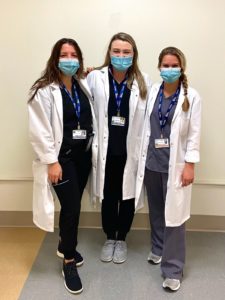Every once in a while, I like to take a moment and reflect on our profession as a whole and the work we perform with the gerontologic population specifically. Good speech-language pathologists are an incredible mix of scientists, counselors, and educators and like many professions, it takes hard work and dedication to continue to stay at the top of our craft.
Through my years as a clinician, I have seen that the great clinicians, my heroes, have had certain habits in common that I have tried to emulate. Below is a non-exhaustive list of what I believe are some of the most essential 6 habits and attributes each has had.
1. Question everything you know (except your core values)
Often, we all, young and old clinicians alike, believe that the way that we were taught or the way we have been doing things is in fact the way that things have to be done. One of the things I learned from a supervising clinician when I was in graduate school was that you can’t always change the behaviors of your client but you can always change your own.
Flexibility and willingness to explore new avenues are essential to changing and adapting to new clients and new environments. While that is true for almost everything, there are the parts of your clinical self, your integrity, your compassion, or your willingness to help that should always remain.
2. Read something new every month Each one of us is busy and reading journals, articles or even the ASHA listserv may feel an awful lot like homework at times. Making a commitment to bump up the time you spend on staying up to date is a great way to make staying current a habit.
Taking 30 to 60 minutes a week or even a month to read something new within our profession allows us to see what new procedures, interventions, or research is out there. Reading research is not as easy as reading a novel. We need to read articles with a skeptical eye and not take the word of literature as truth while at the same time not dismissing possible important new information because it is different.
3. Experiment Given, we are in an era of evidence-based practice ergo, everything we should be doing should have some evidence that it will lead to positive results, so I am not speaking of wearing onion halves as earmuffs to increase cognition. Having said that I challenge each and every one of us to stretch beyond our current bag of tricks and try something new that we haven’t tried before. Experimenting on the types of activities we perform, the pace of treatment, or our interactions with our clients are all subjects of potential experimentation.
4. Write down what you learn You know that old expression, “if you didn’t document then you dint do it”? Well that expression carries a bit of weight in life as well.
Writing or journaling is a great way to get a better understanding of how therapy sessions are going and the activities and procedures are working. Journaling also chronicles your personal journey through your professional career and allows you the opportunity to look back and reflect on where you came from and see how you’ve changed as a clinician over the months and years. Writing incorporates other parts of the brain that may help stimulate potential new insights.
5. Stimulate your brain in areas away from speech Having interests, hobbies, and diversions outside speech pathology are more than a way to decompress after a day of work. Gaining proficiency in something other than speech stimulates your brain differently and allows for the possibility for each of us to gain a new perspective that we can bring back to the profession.
6. Exercise, eat well, rest, and repeat I guess this may go without saying but exercise, diet, and rest are essential for anyone to be their best. Research shows that exercise increases blood flow to the brain, which increases oxygen levels. This coupled with proper diet and rest allows our bodies to continue to perform as best as possible as we help others to make improvements.



